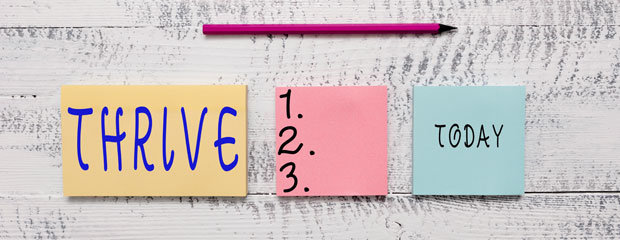The pandemic era has been referred to as a reset for the hospitality industry. It’s been difficult for many hotels to stay open amid lockdowns and strict protocols, yet the pressure acted as a greenhouse for some, resulting in greater innovation and growth than ever. As we look optimistically toward the end of the pandemic, hotels that try to maintain or return to normal pre-pandemic operations will struggle because the industry and the world have changed. Conversely, hotels that adopted pandemic innovations into their operations will not only have survived the pandemic but will thrive long into the future. And you can, too. Here’s how to help your hotel thrive post pandemic.
Unique Selling Proposition, Regional Travel & Partnerships
While your hotel’s Unique Selling Proposition (USP) is generally understood as what makes you better than the competition, there’s room for everyone. We don’t need to compete, per se, with other hotels in the same market. Instead, shift away from the competition mindset and instead of focusing on what makes you better, focus on what makes you great. And what makes your hotel unique is what makes you great. Be clear about what makes you different. What’s so great about your location? Your staff? Your amenities? Your vibe? Whether guests are traveling for business or for pleasure, they’re looking for an experience, not just a place to rest their heads.
If you’re not sure that you are offering something unique, it’s time to find your angle. During the pandemic, hotels relied on regional and staycation guests like never before due to travel restrictions. With that in mind, we saw hotels creating experiences for locals that included theme and day-use rooms for remote work, family stay and play packages, private swimming pool bookings, and rooftop s’mores to name a few—things that appeal to guests from near and far.
Hoteliers have been able to rejuvenate an often neglected regional market by teaming up with local partners as well. Cross promoting with adventure companies, hotels, spas, restaurants, and shops to offer vacation packages, discounts and coupons, and social media contests not only supports local industry but promotes your whole region as a place to vacation, whether that’s in the guest’s backyard or farther afield.
Moving forward to post-pandemic days, we expect this trend to continue as several segments of your local market have rediscovered local joys, whether that’s for a quick romantic retreat, a short-drive family vacay, or some luxury alone time. Being a hometown hero also puts your hotel front of mind as a local recommendation amongst residents and businesses alike.
Personalized Digital Marketing
Expanding on your USP, it’s important to acknowledge that different benefits benefit different people. Be sure to identify who your different customers (personas) are—by way of technology.
Social Media has long been the marketers’ dream by allowing targeted interest-based ads with measurable results! While Google (in January 2020) vowed to get rid of cookies (which allow you to retarget web visitors with follow-me ads) on their Chrome browser, social media ads offer interest-based targeting so you can serve up ads on various platforms to those who have shown an interest in topics you choose as related to your property. While this isn’t a new technology that emerged out of the pandemic, it bears emphasizing as part of your hotel’s digital marketing and social media strategy to target people who will appreciate your USP. In this way, instead of focusing on reaching the most people with your campaigns, you focus on delivering highly relevant content to specific groups of people to deliver a more personalized experience.
Another way to deliver personalized content is by maintaining a Customer Relationship Management (CRM) tool that gathers data from the moment a guest begins their booking. Ask for personal details that will help you cater to their experience…and tell them that’s why you’re asking! Consider adding fields in your booking form for special requests and the purpose of their trip. People are much more willing to share personal information about themselves if it means a more personalized experience. Integrate your CRM with your property management system to power even richer guest profiles.
The use of pre-stay emails grew among hotels during the pandemic as an essential way to communicate current COVID-19 protocols and clear arrival messaging. Clarity about what to expect on arrival can go a long way to ease anxiety in those who may not be comfortable with travel just yet. Pre-stay emails can also be used to offer guests useful, personalized information about your hotel that can also help boost the value of your bookings through upselling hotel packages and amenities. Targeted upsell emails can be triggered based on pre-set criteria (for example, a family package upgrade offer sent when children are included in a booking) and automatically sent via integration with your property management system.
Personalization can also be a task for your web designer: a pop-up on your website can ask visitors what they’re looking for: family vacation, romantic retreat, friend getaway, peace and relaxation, or business trip, for example. When an experience is selected, take them to a page filled with relevant information and rooms. And don’t forget the “book now” button.
Technical Innovations
The pandemic made some existing hotel technologies more pertinent than ever. The pandemic also made people more comfortable with technology in the face of working from home, online shopping, and staying in touch with friends and family with tech.
At the top of the list is contactless check-in. From the comfort of their property management system, hotels provided socially distanced self-check-ins via digital guest registration applications, along with online payment and keyless entry integrations to bypass the front desk altogether.
Mobile messaging made communicating with guests easier than ever, while conversely upped the customer service ante for guests. Front desk staff can answer guest questions in the moment and without physical interaction, and helpful routine messages can be delivered to guests automatically when the messaging application is integrated with the PMS. Relevant and convenient, ensure mobile messaging isn’t forgotten as part of your larger communication strategy.
Hotels using mobile housekeeping reports before the pandemic had a leading edge in keeping up with protocols and guest satisfaction standards. Housekeeping staff can access real-time room cleaning schedules and status updates from their mobile device as they work, boosting efficiency and streamlining interdepartmental communications. Granular cleaning checklists specific to room type ensure accountability and accuracy. Guests now expect deeper cleaning and higher sanitation standards—meet them where they are with added efficiency.
The Human Touch
Technological innovation is essential for hotels to thrive post pandemic, but don’t forget your hotel’s human touch. While guests may receive hotel communication through technological means—from emails to text messaging—make sure the message is warm and welcoming. It’s not only your post-booking communication that needs humanizing. Think of all communication as pre-stay communication, from website content to ads to marketing emails, as essentially they are. Start with the mindset that everyone is a future (or future repeat) guest. That tiny shift in your communication approach can help turn lookers into bookers and refocus your content from selling to helping. Psychologically, when people feel like they are being given a hard sell, resistance is a natural response. Conversely, the natural response to feeling helped is to reciprocate.
Another way to maintain the human touch is to look for opportunities to delight your guests: whether that’s through a superbly designed website that’s intuitive, complete with an easy-to-use booking system, or a free bottle of wine in the room upon arrival for a couple celebrating an anniversary, concentrate on offering moments of delight. Doing so instills trust and builds loyalty.
In an effort to humanize your hotel, it’s also important to show your guests that you care about your community through social and environmental initiatives. Be sure to let your guests know what you are doing to make your hotel more sustainable to not only build loyalty but help environmentally-minded folks decide where to stay. Sustainability is not a trend but a movement with deep roots in up-and-coming generations from Millennials to Gen Z.
Celebrating what’s unique about your hotel while leveraging technology for personalized service to maintain a human touch is the answer to thriving post pandemic. As your hotel evolves and grows, success is no longer about outsmarting your competition. Times have changed and there’s enough room for everyone because the best way to attract guests is to invite them to a community that is thriving together.


